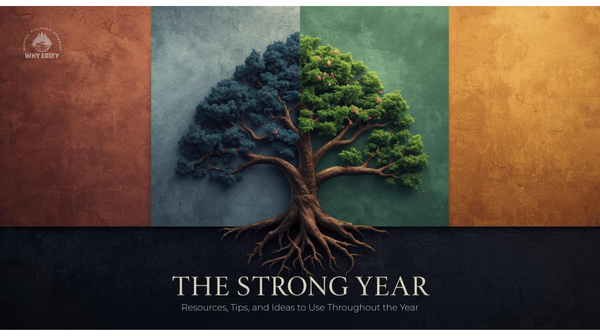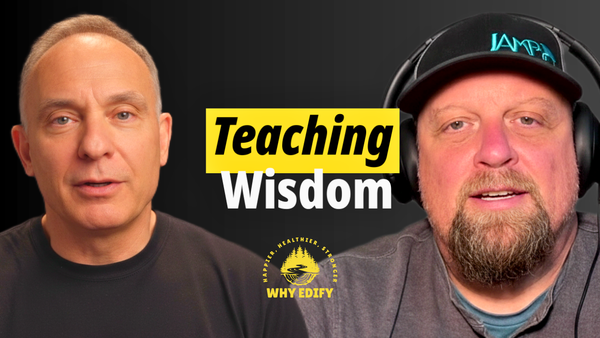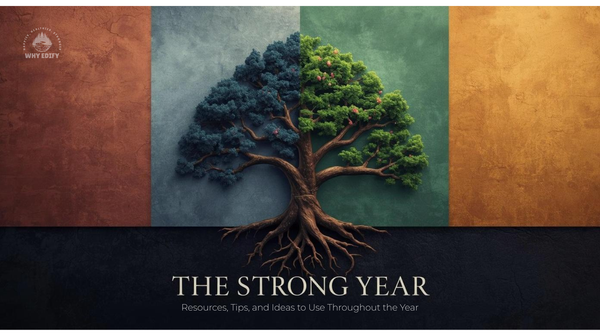The Stories We Tell Ourselves
Learn how metacognition—the ability to think about your thinking—can help teachers rewrite negative self-talk, reframe daily challenges, and model a growth mindset for students and life beyond the classroom.

(Mindset Shifts for Teachers – Week 2)
This is Week 2 in the Mindset Shifts for Teachers series.
Next week, we’ll explore how to move from scarcity to abundance—a shift that helps teachers find peace and possibility even when resources feel tight.
“Don’t believe everything you think.” — Unknown
Every teacher has an inner voice that runs in the background throughout the day. Sometimes it cheers us on. But often, it criticizes, doubts, or magnifies our mistakes.
It says things like:
- “I’m not doing enough for my students.”
- “I’ll never catch up on grading.”
- “Everyone else seems to have it figured out but me.”
Those thoughts feel true in the moment, but they’re often stories—not facts.
When we start noticing those stories, we gain power over them. This is the power of metacognition —stepping back from our thoughts to see them clearly. Modern psychology calls it cognitive reframing. Whatever the label, it’s the same process: becoming the narrator, not the character being tossed around by the plot.
In the classroom, this mindset shift changes everything. Instead of “I’m failing at this,” we can reframe:
- “Today was hard, but I learned what didn’t work.”
- “I had a tough class, but tomorrow is another chance.”
- “This student isn’t responding yet, but I’ll keep trying.”
By changing the story we tell ourselves, we change how we show up for our students. We become calmer, more grounded, and more hopeful—and that energy spreads.
Beyond the Classroom
Our inner dialogue doesn’t stop when the final bell rings. It follows us home, whispering judgments about parenting, relationships, and goals:
- “I should be further ahead by now.”
- “I’m not disciplined enough.”
- “I always mess things up.”
These stories are often inherited from old experiences, expectations, or comparisons. The truth? We can rewrite them.
Rewriting your story doesn’t mean pretending everything is fine—it means choosing language that empowers growth instead of shame.
Try replacing:
- “I’m behind,” with “I’m in progress.”
- “I failed,” with “I learned something valuable.”
- “I can’t handle this,” with “I’m learning how to handle this.”
Your inner voice is the tone-setter for your entire life. The more compassionate and truthful it becomes, the stronger you grow.
Try This:
Pay attention to your inner dialogue for one full day. When you notice a harsh or limiting thought, pause and ask:
“If a friend said this about themselves, how would I respond?”
Write the kinder version—and start using it with yourself.
Reflection Prompt
What story have you been telling yourself lately that no longer serves you? How can you rewrite it into something more honest and encouraging?
With Gratitude,
Jeremy
👉 Want to go deeper? Inside The STRONG Teacher’s Lounge we’re exploring how embodying our values helps us become happier, healthier, and stronger teachers. Come join the conversation.
Explore the Teacher Reset Kit → My curated storefront with journals, books, and wellness gear that helps teachers recharge. (Purchases earn a small commission that keeps this newsletter free.)
Explore the Bonfire Shop → You’ll find shirts, mugs, and reminders to pause, renew, and stay strong.
Join the STRONG Teacher’s Lounge → A supportive space where educators share expertise, swap strategies, and learn from one another. Your voice matters here, and your presence helps strengthen our collective mission. Join Here!
Every purchase and every new member helps support the Why Edify Community. Thank you for being part of it!



